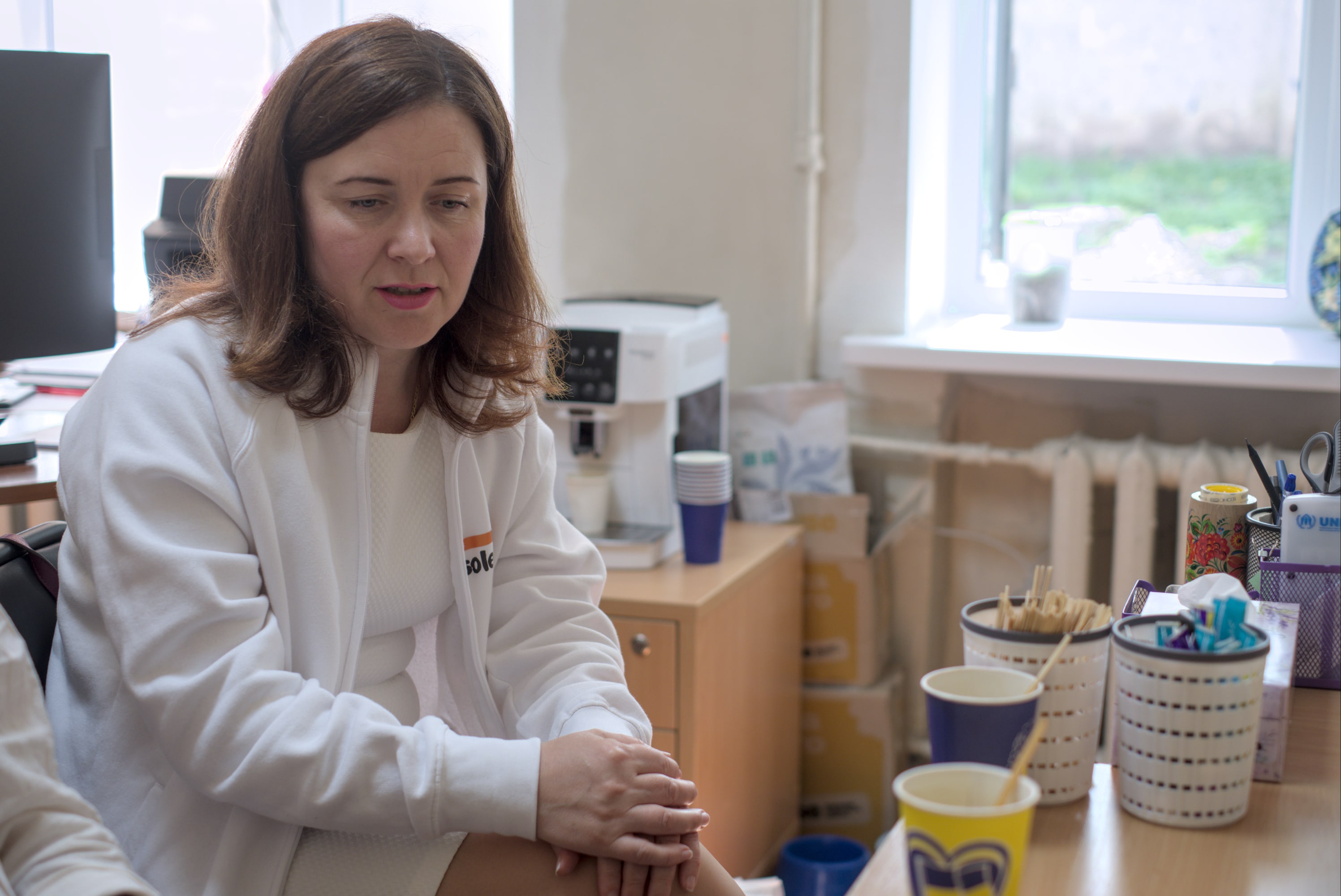 “We Ukrainian women, after 11 years of war – and even more so in the past three – have learned to live in crisis, to stay, and to face challenges. We do whatever is necessary to support our families and our country. We study, work, teach our children, and take care of ourselves and others. We are strong and united.”
“We Ukrainian women, after 11 years of war – and even more so in the past three – have learned to live in crisis, to stay, and to face challenges. We do whatever is necessary to support our families and our country. We study, work, teach our children, and take care of ourselves and others. We are strong and united.”
These are the words of Yulia Pohonysheva, a psychologist working in shelters in Dnipro, a city close to the front lines and a crucial hub for those fleeing combat zones. Every day, women and children arrive there, carrying the weight of war on their shoulders and bringing with them traumas that are difficult to process. Here, psychological support is not an afterthought, it is an essential part of both resistance and reconstruction.
Since 2022, Yulia has helped 481 women, supporting them in finding the strength to recover, overcome trauma, and take back control of their lives.
“My work is to support displaced people, mostly women and children. It is essential to provide them with a safe space where they can express themselves and quickly build a relationship of trust. Only then can they share their stories and find answers.”
The trauma of war is not just physical. Insecurity, loss, violence, the destruction of homes, separation from loved ones, and uncertainty about the future leave deep scars on mental health. Psychological support is key to helping women process their pain, regain confidence, and reclaim their lives.
“Through these sessions, their condition improves not only because they have someone to talk to, but also because they learn practical tools to cope with their situation.”
Over the past three years, the role of women in Ukraine has changed dramatically. With many men engaged in the defense of the country, the responsibility of families and communities has fallen entirely on women. They are the ones ensuring daily life continues, taking care of children, the elderly, and the most vulnerable. But to do so, they must be supported.
“The modern Ukrainian woman is strong, capable of remaining calm and loving, of protecting her space, and taking responsibility.”
Therapy helps overcome trauma, but practical solutions are also needed to rebuild lives shattered by war.
“A crucial step would be to ensure safe housing where women can receive professional training and build their economic independence. Psychological support helps them find the strength to act. Processing a traumatic event means developing a new way of thinking: when basic needs are met, space opens up for the future, for what brings joy, and for a better life. The women I work with learn how to influence their own condition and become agents of change, thanks to cognitive-behavioral therapy.”
Because war does not only leave marks on cities, it leaves them on people. Resisting its brutality means also regaining balance, strength, and perspective. Mental health is as much a part of reconstruction as rebuilding homes and roads. And providing women with the tools to move forward means investing in the future of an entire country.
This is why we support targeted interventions that, through the work of professionals on the ground, provide psychological assistance to those who need it most.
Yulia is involved in the “Life-saving multisectoral support for the Ukrainian population in the regions of Kharkiv, Dnipropetrovsk, and Zaporizhzhia” project, implemented by Soleterre in collaboration with World to Ukrainians and Frontline Medics, funded by the Italian Agency for Development Cooperation in Kyiv.
This project is part of the Emergency Initiative for the population affected by the conflict in Ukraine and neighboring countries (AID 012832), supported by Italian Cooperation, which, through 26 programs and over 100 partners, is reaching one million people across Ukraine and Moldova.
Soleterre’s project provides psychological support in rural areas and reception centers, reaching 2,753 people—60% of whom are women. Another key pillar is the fight against gender-based violence. An awareness campaign has reached over one million people in the regions of Kharkiv, Dnipropetrovsk, and Zaporizhzhia, using billboards, posters in public transport, direct outreach in reception centers, and a strong presence on social media. Additionally, the project has organized training on GBV (Gender-Based Violence), Gender Mainstreaming, and PSEAH (Prevention of Sexual Exploitation, Abuse, and Harassment), led by Soleterre’s GBV Specialist, Olesiia Tragniuk, involving 41 representatives from authorities and civil society organizations. At the same time, a mapping of free services available to support survivors of gender-based violence has been carried out.
More info:
Barbara Taccone – barbara.taccone@aics.gov.it